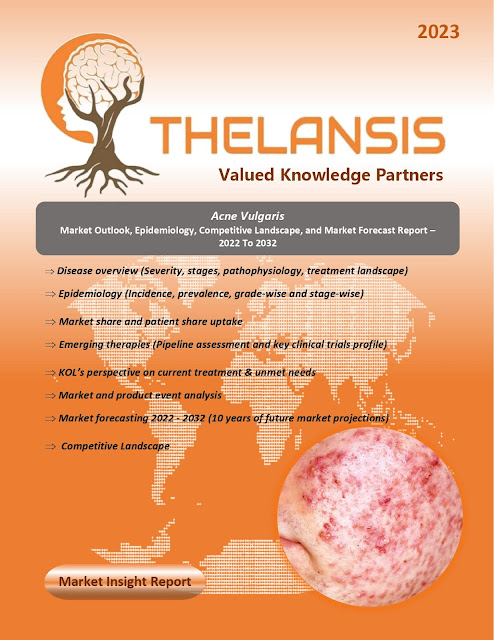Lupus Nephritis (LN) – Market Outlook, Epidemiology, Competitive Landscape, and Market Forecast Report – 2022 To 2032
Lupus nephritis (LN) is a severe
complication in patients with systemic lupus erythematosus (SLE). Its
prevalence varies depending on factors such as ethnicity, sex, and age of
disease onset, ranging from 35% to 60%. LN, along with increased susceptibility
to infections, significantly contributes to the morbidity and mortality of SLE
patients. Histologically observed in most SLE patients (even those without
apparent renal symptoms), renal involvement is characterized by hypertension,
proteinuria, and eventual renal failure. Lupus nephritis is classified into six
classes based on kidney biopsy findings: minimal mesangial lupus nephritis
(class I), mesangial proliferative lupus nephritis (class II), focal lupus
nephritis (class III), diffuse lupus nephritis (class IV), membranous lupus
nephritis (class V), and advanced sclerosing lupus nephritis (class VI). The
pathogenesis of LN is complex. It involves abnormalities in various immune
system components, including B and T cells, the complement cascade, cytokines,
and clearance of apoptotic cells. The diagnosis of LN is suspected based on
changes in laboratory parameters, such as elevated creatinine levels, the
presence of hematuria and proteinuria, and low serum complement levels.
Treatment approaches for LN commonly involve a combination therapy of
corticosteroids with either cyclophosphamide or mycophenolate. Once remission
is achieved, maintenance therapy consists of gradually reducing the
corticosteroid dosage and using an antimetabolite. The differential diagnosis
for LN includes other causes of nephrotic syndrome, nephrolithiasis,
hydronephrosis, medication-induced acute kidney injury, and acute interstitial
nephritis. The long-term prognosis of LN varies depending on the class of
nephritis. Classes I (minimal) and II (proliferative mesangial) generally have
a favorable prognosis, while prognosis worsens as the disease progresses
through different classes. Class III has a poor prognosis, and class IV is
associated with the poorest prognosis. The timing of therapy initiation also
affects prognosis, with earlier treatment initiation leading to better disease
outcomes.
·
The estimated annual prevalence of lupus
nephritis in the USA is approximately 21.2 cases per 100,000 individuals.
Thelansis’s “Lupus Nephritis (LN)
Market Outlook, Epidemiology, Competitive Landscape, and Market Forecast Report
– 2022 To 2032" covers disease overview, epidemiology, drug utilization,
prescription share analysis, competitive landscape, clinical practice,
regulatory landscape, patient share, market uptake, market forecast, and key
market insights under the potential Lupus Nephritis (LN) treatment modalities
options for eight major markets (USA, Germany, France, Italy, Spain, UK, Japan,
and China).
KOLs insights
of Lupus Nephritis (LN) across 8 MM market from the centre of Excellence/
Public/ Private hospitals participated in the study. Insights around current
treatment landscape, epidemiology, clinical characteristics, future treatment
paradigm, and Unmet needs.
Lupus Nephritis (LN) Market Forecast Patient
Based Forecast Model (MS. Excel Based Automated Dashboard), which Data Inputs
with sourcing, Market Event, and Product Event, Country specific Forecast
Model, Market uptake and patient share uptake, Attribute Analysis, Analog
Analysis, Disease burden, and pricing scenario, Summary, and Insights.
Thelansis Competitive Intelligence (CI) practice
has been established based on a deep understanding of the pharma/biotech
business environment to provide an optimized support system to all levels of
the decision-making process. It enables business leaders in forward-thinking
and proactive decision-making. Thelansis supports scientific and commercial
teams in seamless CI support by creating an AI/ ML-based technology-driven
platform that manages the data flow from primary and secondary sources.
_page-0001.jpg)



Comments
Post a Comment